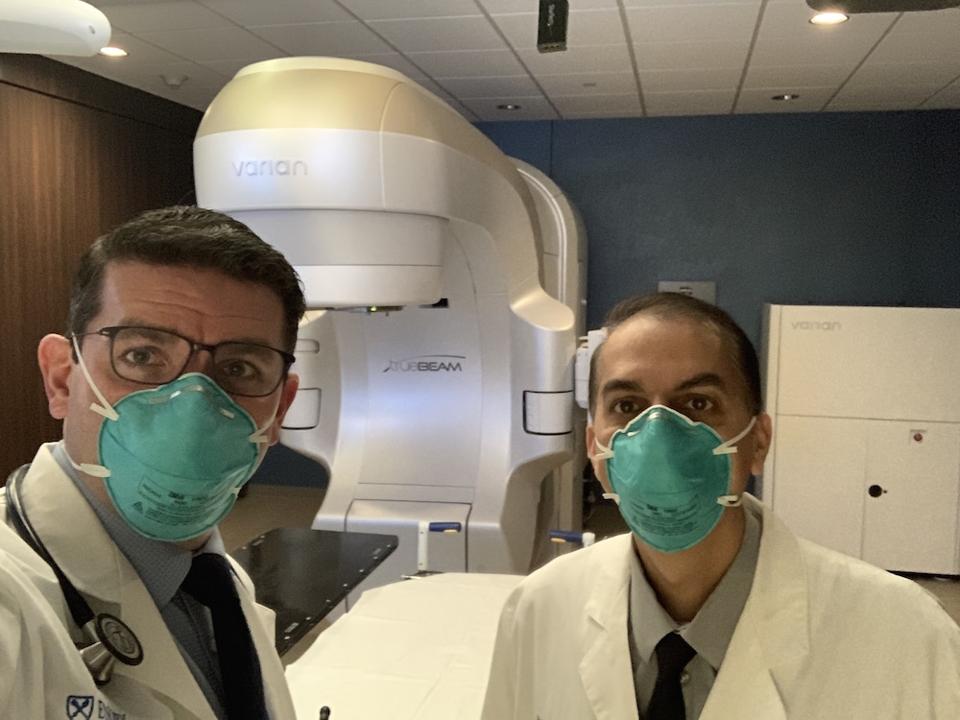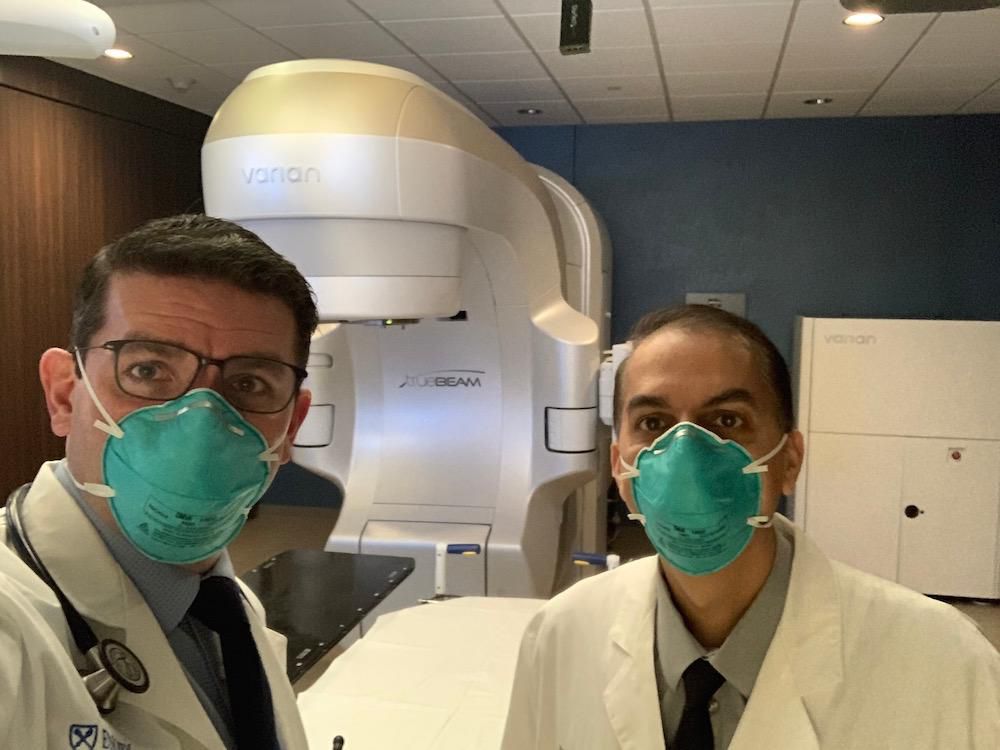Human medical trials have begun on severely ill COVID-19 patients using low-doses of radiation. The first results on a very small group were published this week in a non-peer-reviewed journal that exists to get critical results out quickly to the scientific and medical community.

The medical team at Emory University Hospital led by Dr. Mohammad Khan (on the right; Dr. Clayton … [+] Hess is on the left, shown on the first day of the Low Dose human trial) is the first to demonstrate how low doses of radiation can treat COVID-19. Delivering a low dose of radiation to any part of the body is routine and using radiation to treat COVID-19 is simple – no new preparation, additional equipment, or training is needed. We do it all the time. And it seems to be working.
The results were quite extraordinary.
Researchers at Emory University Hospital, led by Dr. Mohammad Khan, Associate Professor of Radiation Oncology, treated five COVID-19 patients with severe pneumonia who were requiring supplemental oxygen and whose health was visibly deteriorating. Their median age was 90 with a range from 64 to 94, four were female, four were African-American, and one was Caucasian.
These patients were given a single low-dose of radiation (1.5 Gy) to both lungs, delivered by a front and back beam configuration. Patients were in an out of the Radiotherapy Department in 10 to 15 minutes.
Within 24 hours, four of the patients showed rapid improvement in oxygenation and mental status (more awake, alert and talkative) and were being discharged from the hospital 12 days later. Blood tests and repeated imaging of the lungs confirmed that the radiation was safe and effective, and did not cause adverse effects – no acute skin, pulmonary, gastrointestinal or genitourinary toxicities.
The gray (Gy) is a dose unit of ionizing radiation defined as the absorption of one joule of radiation energy per kilogram of matter. The Gy replaces the older unit of the rad, and 1 Gy = 100 Rad.
This treatment is critical because severe COVID-19 cases cause cytokine release syndrome, also known as a cytokine storm. Such a storm is a deadly uncontrolled systemic inflammatory response of the body’s immune system resulting from the release of great amounts of pro-inflammatory cytokines, which act as a major factor in producing acute respiratory distress syndrome, or ARDS, which is what kills.
It’s why we need ventilators and ICU beds so badly, and why this pandemic threatens to overwhelm our hospital systems.
One reason why this trial is so important, and why the success rate was so exciting, is COVID-19’s increasing fatality rates with age – 8% for patients aged 70 to 79 and 14.8% for those aged 80 and over – so showing this treatment is safe and effective for these elderly patients was vital. Mortality rates are even higher if you get hospitalized and are in the ICU, over 50%.
It’s the anti-inflammatory effects of radiation, not its antiviral action, and it’s these anti-inflammatory effects that is invaluable in helping patients with COVID-19 and that were demonstrated in this trial.
We are already completely set up for these radiation treatments at almost every hospital and cancer center – no new preparation, additional equipment, or training is needed. There is no supply chain issue with this treatment.
As discussed previously, several medical institutions are starting radiation therapies for COVID-19. The Clinicaltrials.gov website gives information on these trials, including an Italian clinical trial, a Spanish clinical trial and others that have begun and more have recently been added to the ClinicalTrials.gov website, with five of them currently recruiting patients. The countries represented are USA(2), Spain(2), Italy (1), Iran(1), and India (1).
Dr. James Welsh at Loyola University Medical Center, and former Chairman of the Board of the American College o

